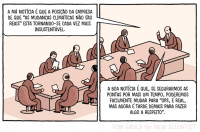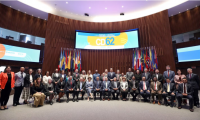Special issue of PAHO journal spotlights efforts to improve regulation of medicines in the Americas

A special issue of the Pan American Journal of Public Health published by the Pan American Health Organization (PAHO) with the support of the U.S. Food and Drug Administration (FDA), provides the latest scientific evidence on the regulation of medicines and other health technologies. This new information will help regulatory authorities to make informed decisions, broaden regulatory scope, and learn from the experiences of others.
These national regulatory authorities are responsible for regulating and controlling medicines and other health technologies such as vaccines, blood products, and medical devices made available to the public, thereby ensuring the quality, safety, and efficacy of these products and protecting people from potential health risks.
This special issue seeks to contribute to a better understanding of the role that regulatory authorities play in global health, and shares “outlooks, opportunities, and challenges in the regulation of the medicines identified by experts who work every day in the regulatory environment,” said PAHO Director Carissa F. Etienne.
The publication includes articles by health regulation experts in the Americas, as well as international specialists who share a wide range of pioneering experiences. Among other issues, the journal analyzes key contributions from international collaboration, public-private partnerships in regulatory science and the development of good regulatory practices. It also describes the constant challenges that regulators face in building robust and convergent regulatory systems in different countries, in a context of limited capacity, including human and financial resources, at both the national and global level.
The original research articles address subjects such as regulatory barriers to the effective use and adoption of common standards for regulatory convergence and harmonization, the status of medical device regulation in the Americas, and the Regulatory Center for Medicines of the Bolivarian Alliance for the Peoples of Our America. The special reports include work on strengthening the Pan American Network of Official Medicines Control Laboratories, a case study in the Caribbean Community (CARICOM) on regionalization as a means to strengthen regulatory systems, and a report on the regulatory authorities of regional reference in the Western Hemisphere. This issue of the journal also describes the experiences of Brazil, Cuba, and Colombia.
During the launch of the special issue, the Director of PAHO (Regional Office for the Americas of the World Health Organization) stressed that having solid regulatory systems is essential in order to produce good outcomes in public health, achieve universal health, and reach the new Sustainable Development Goals (SDGs).
New platform launched to share regulatory information
In addition to the publication, the new regulatory exchange platform (REPs) was launched as a digital tool to support the secure exchange of non-public information between regulatory authorities in the Americas and elsewhere. The platform seeks to improve the exchange of information, streamline the use of resources, and promote regulatory harmonization and convergence in the Region.
Created with the financial support of the United States, Brazil, and Canada, and with PAHO acting as Secretariat in charge of its development, REPs is based on a previous PAHO initiative: the Regional Platform on Access and Innovation for Health Technologies (PRAIS). The initial focus will be to support the Medical Device Single Audit Program (MDSAP), a multicountry collaborative effort to improve the regulation of medical devices.



